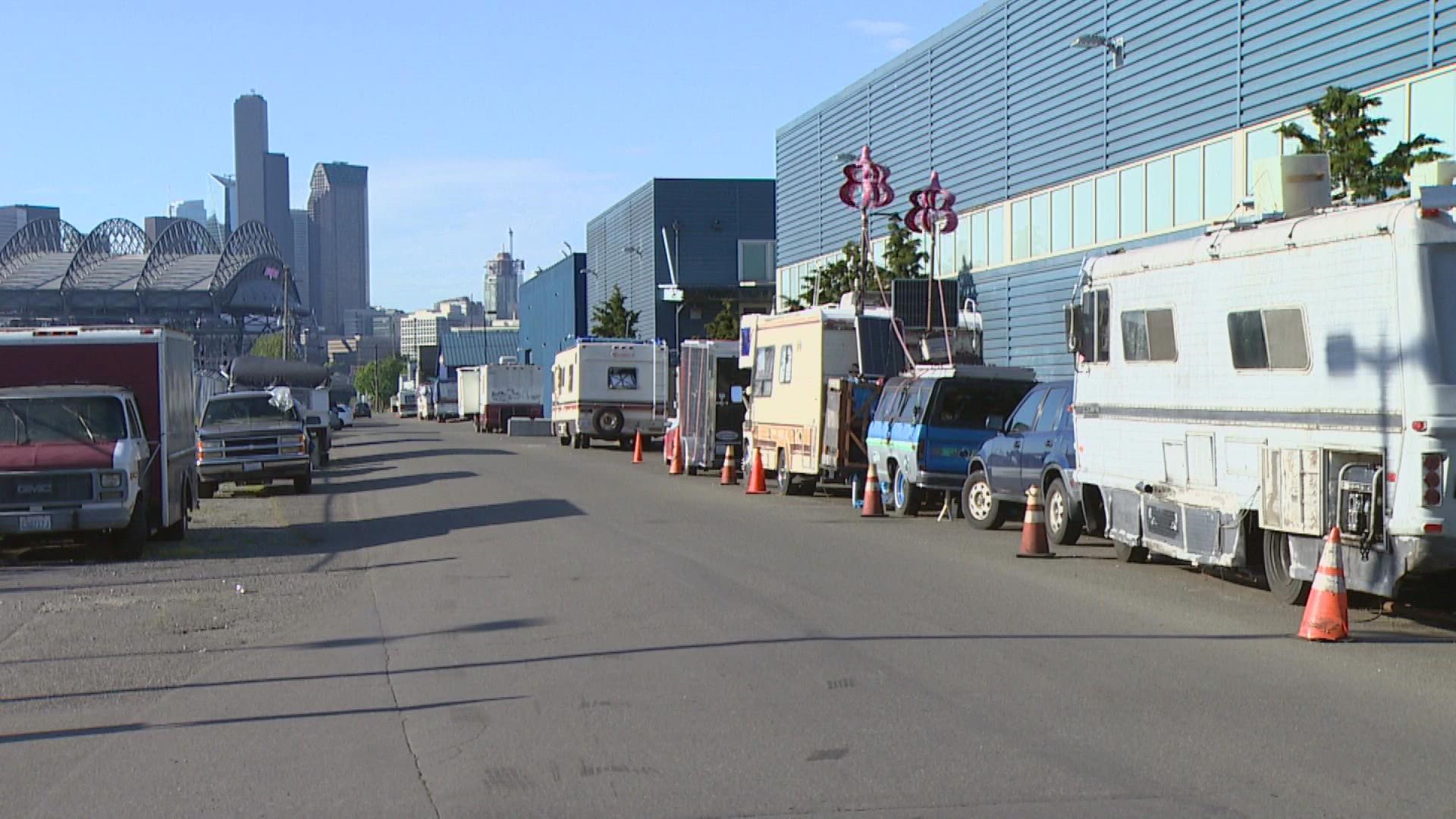SEATTLE — The city of Seattle will spend the next six months and nearly $2 million to create safe parking for those living in RVs or other vehicles. The plan comes as Seattle Mayor Bruce Harrell unveiled his homeless action plan earlier this month.
The Low-Income Housing Institute (LIHI) is the group tasked with implementing the “safe lot program,” a contract awarded to them by the King County Regional Homeless Authority.
Organizers said they’re looking at about a dozen potential locations. They call it a desperately needed program and a way to connect people to services they badly need.
“For folks that are homeless and living in their RV, it is their biggest asset,” said Jon Grant of the LIHI. “These are folks that the homeless system has failed before, so they’ve become self-reliant.”
On Tuesday, notices were up in Seattle’s Mount Baker neighborhood warning those living in RVs to move their property or it will be cleared and, in some cases, towed.
The city of Seattle is once again enforcing its 72-hour parking rule that was partially put on pause during the COVID-19 pandemic. This comes as Harrell unveiled a new, aggressive response to homelessness earlier this month.
In total, Harrell said the city is spending $173 million toward everything from developing affordable housing to the creation of new so-called safe lots for RV and camper parking.
“The program seeks to serve about 34 RVs and about 50 people, and it’s going to have some pretty intensive case management services attached to it as well as behavioral health,” explained Grant. “The goal is to eventually move the people out of RVs and into permanent housing.”
The idea itself isn’t new. Two weeks ago, Olympia unveiled its own similar version. Rather than tow, the city is now allowing for free parking permits for campers, but there are restrictions.
The city required those living in vehicles along the quarter-mile stretch of Ensign Road to agree to a list of conditions. Those conditions include the proper disposal of trash and human waste and only one lawn chair per person outside of the vehicle. Residents cannot engage in violent behavior.
At the time, a spokesperson for the city of Olympia said they have no shelter space – and started what’s believed to be the first permit program in the U.S.
Back in Seattle, LIHI will have nearly $2 million and the next six months to secure a lot and begin hosting campers.
“This is a very vulnerable population, so there is a huge urgency to get this program set up, and we’re working as quickly as we can to do so,” Grant said.
The program starts with camping but hopes to connect residents with whatever long-term services they may need.

